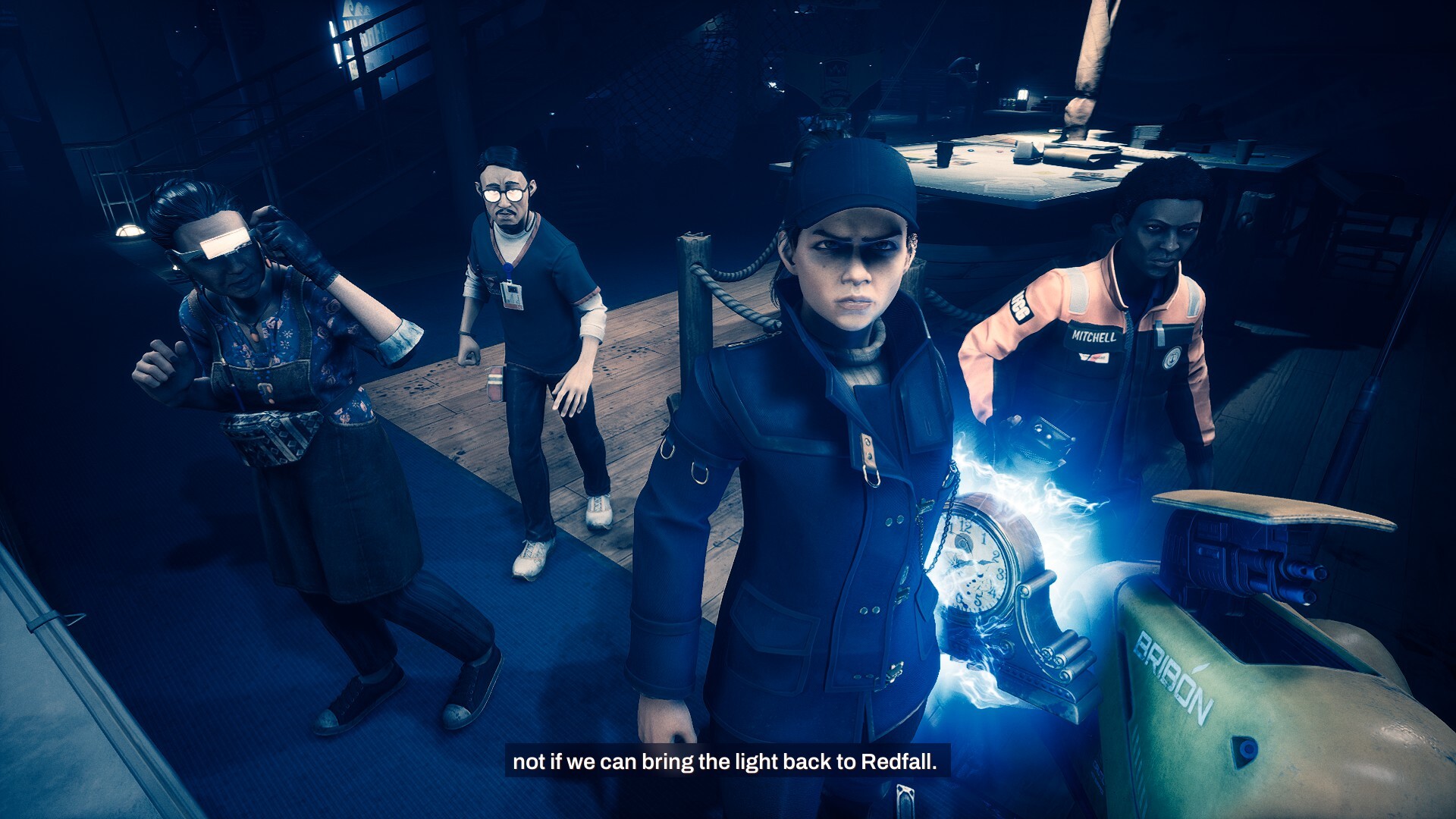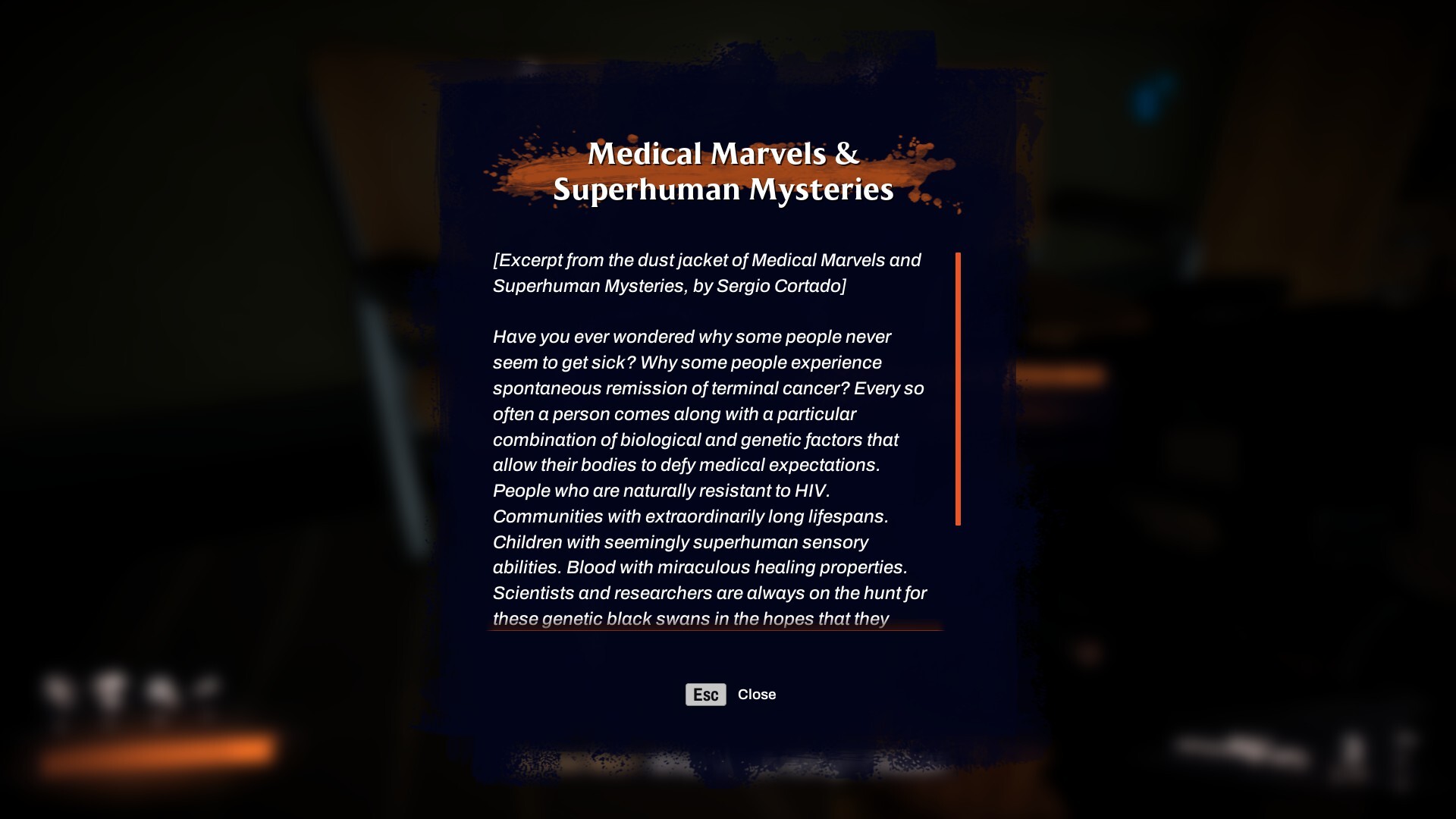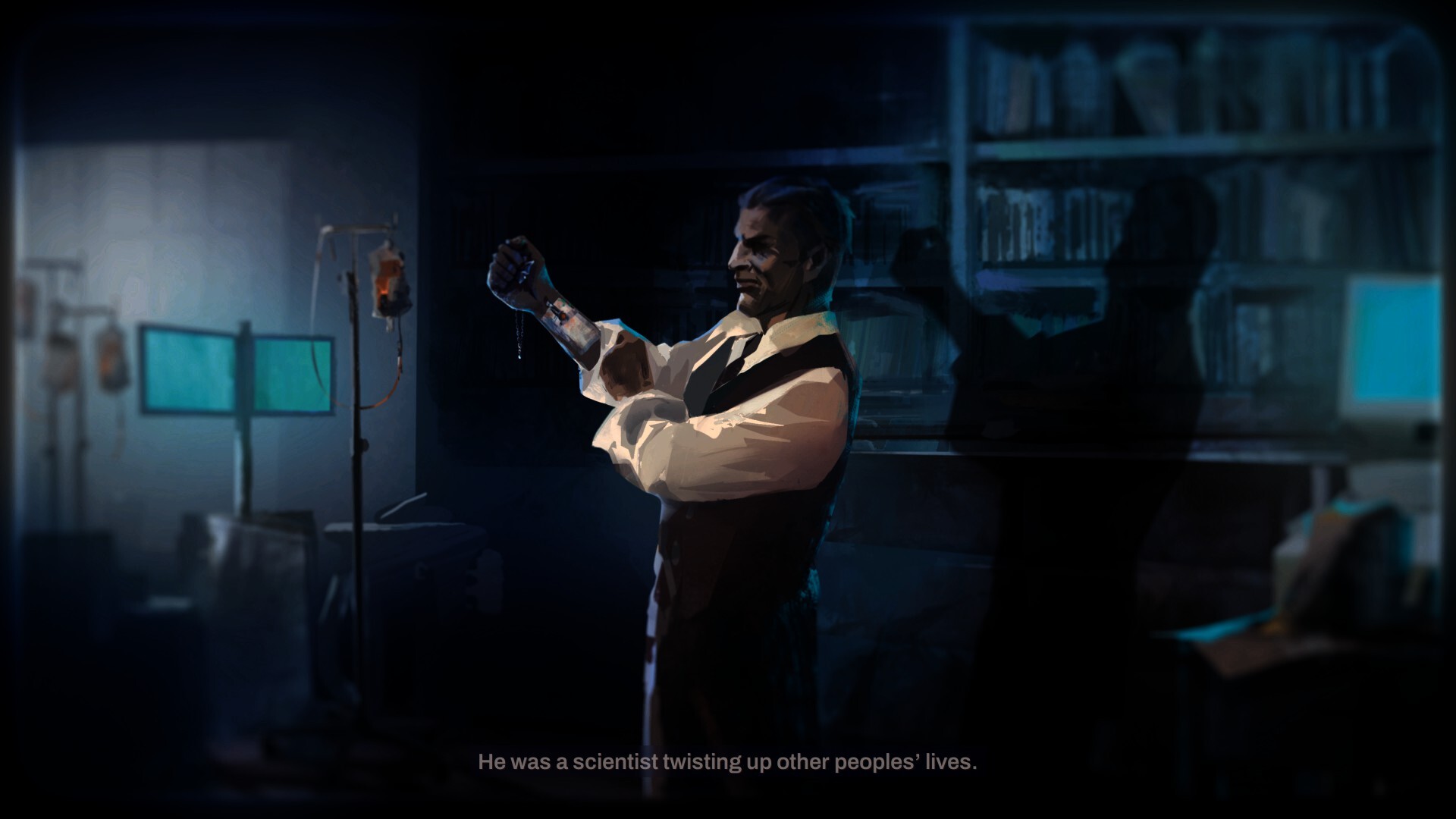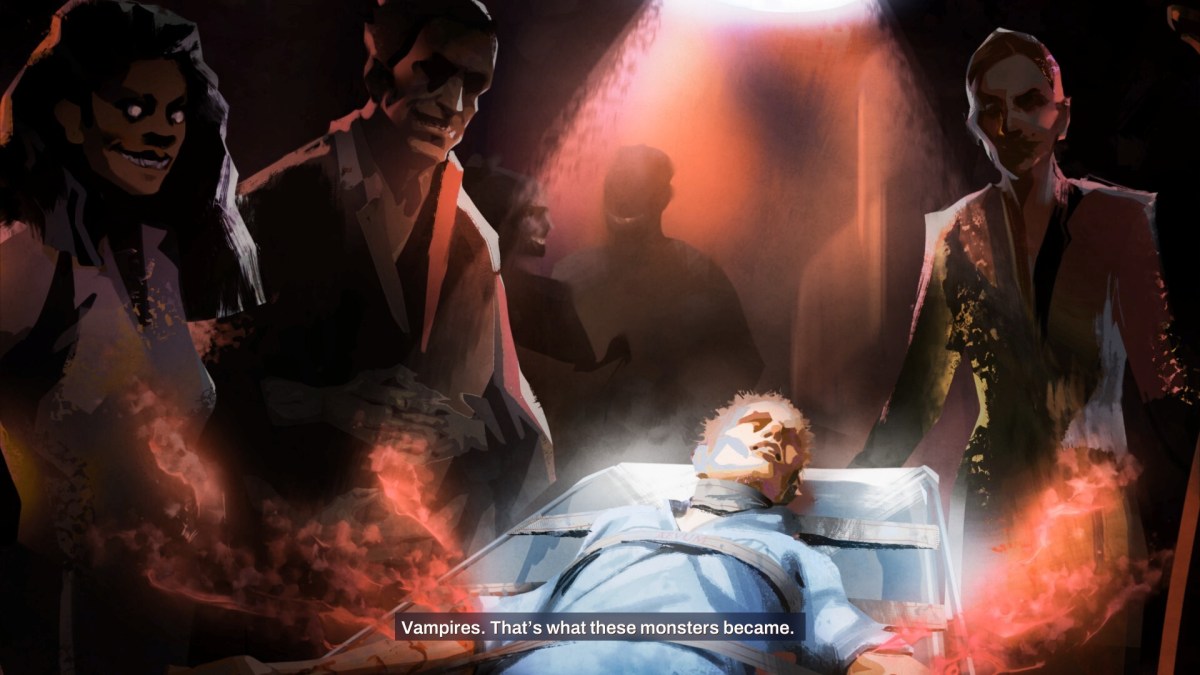This article contains significant spoilers for the story and end of Redfall in its discussion of how bloodsucking vampire executives ruined everything, both in the game and in real life.
Redfall is a game that was ruined by executive interference, which happens to be about a team of executives who’ve ruined everything.
That’s the impression I came away with, anyway. I don’t pretend to have any unique insight into what did or didn’t happen to Redfall during production. All I did was play it for a little under 48 hours, to go by my Steam stats. Granted, I spent most of that breaking into people’s houses to see what had happened to them, but I did clear the game.
Having spent that much time on Redfall, it doesn’t strike me as a game that’s simply broken, or unfinished, or even conceptually flawed. On paper, a lot about Redfall could or should have worked. Instead, it’s got the particular feel of a game that got tanked by its management.
Redfall plays like it might have started production as another immersive sim from Arkane Studios, and in fact, you can draw several straight lines between Redfall and 2020’s Deathloop. Then halfway through the project, someone in a position of authority may have decided that Redfall had to pivot to become a looter shooter, without giving it any extra time in development.
The result is a peculiar chimera of a game. Even if you ignore its performance issues, every system and mechanic in Redfall has at least one glaring flaw: uninteresting loot, useless in-game currency, pointless upgrades, broken enemy AI, and a whole range of cosmetic weapon tints, because on top of everything else it was being asked to be, Redfall also had to be Counter-Strike.

The tints are what convinced me that this had to be some disconnected vice president’s idea. It’s not just that Redfall’s systems are only about half-implemented, but there’s a visible cynicism at play here, like it was forced to fast-follow multiple AAA design trends at once. Nobody asked if these features worked for the sort of game Redfall was shaping up to be; they just decided they had to be here and had the authority to make that decision stick.
I’m bringing this up because the central narrative of Redfall is, in a strange way, about the same kind of executive interference.
From the start of the game, it’s made obvious that the vampires you’re fighting in Redfall are the result of some medical experiment gone wrong, centered on the local corporation Aevum. Aevum was working with a process called parabiosis, a real-world practice that attempts to treat age-related degradation by transfusing patients with younger people’s blood. (The process briefly became infamous in 2016 when Peter Thiel was rumored to have invested in a parabiosis-focused startup, which led to several articles about Peter Thiel, Literal Vampire.)
In Redfall, Aevum’s experiments with parabiosis lead it to Grace, a woman with the inexplicable, supernatural ability to treat other people’s ailments by donating her blood to them.

Suddenly, Aevum’s project is capable of delivering significant medical innovations by using Grace’s blood, but it’s also promising its shareholders more than it can deliver. Grace’s only one woman, with only so much blood to spare, and there’s nothing scientifically replicable about what she does.
That leads Aevum, after two years of exploitation, to kill her. When it’s clear they’ve pushed Grace as far as she can go, the project’s leads drain the last of her blood into their own veins, which turns them into the vampire gods of Redfall.
Redfall ends with Grace, as a psychic echo, thanking the protagonists for what they’ve done, in a monologue that could double as an anarchist call to arms. The vampire gods were, after all, about as efficient a metaphor for capitalist exploitation as anybody could ever write; individually and as a group, they progressed from figuratively to literally feeding off the people around them. They were given a genuine miracle, and they proceeded to kill it because it wasn’t the precise kind of miracle they wanted.
The same sort of story seems to apply to Redfall’s development. As I noted above, I don’t know for certain that Redfall got jacked up in mid-development by some disinterested manager, but I’ve played a lot of games that were — and Redfall’s got that feel to it.

It’s unlikely that the ending of Redfall was made as a deliberate parallel to its production process, but it’d be really funny if it was. Both its stories — its development and its setting — are about something that got destroyed by unrealistic expectations. Redfall got overrun by vampires because a bunch of corporate sociopaths weren’t willing to accept failure, and Redfall plays like an investor with no knowledge of the game development process demanded and got a series of unworkable changes.
That makes Redfall, at the time of writing, a game that feels weirdly recursive. It’s a story about itself, told through a vampire metaphor; it’s a blood-covered dead goose, with no golden eggs anywhere in sight.






Published: May 13, 2023 11:00 am